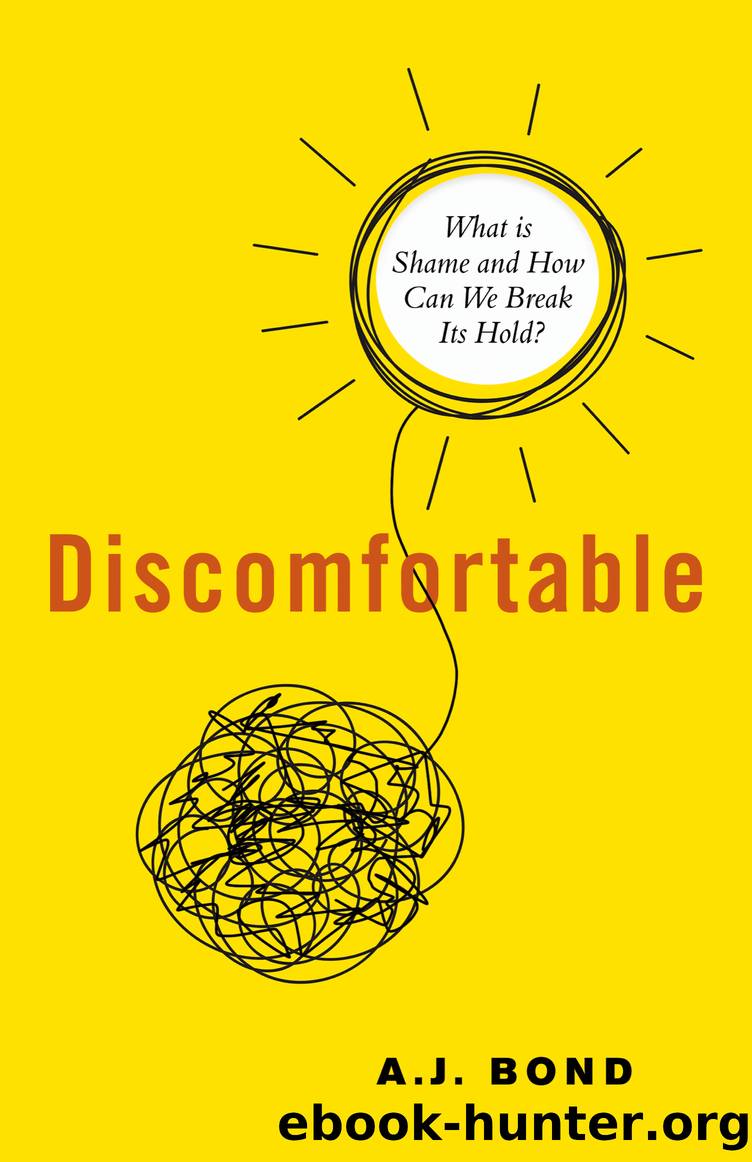Discomfortable by A.J. Bond

Author:A.J. Bond [,]
Language: eng
Format: epub
ISBN: 9781623175573
Publisher: North Atlantic Books
Choice
âBut what if someone actually does something bad? Weâre just going to give them full worthiness anyway? Then why am I bothering to be such a good person?!â
Sometimes we cling to shameâs messages of unworthiness for fear that without them we will have no incentive to be good people anymore. Or perhaps more to the point, we fear that without shameâs threatening messages of potential unworthiness, others will have no incentive to be good people anymore. But I donât think either of these scenarios is true.
First of all, the unpleasant feeling of shame isnât going anywhere. Itâs a primary emotion. We will continue to feel that visceral reminder that we value competence, that we care about others, and that we thrive in groups every time we experience disconnection or fail to live up to our own expectations. But that doesnât mean we also need to believe the toxic interpretation of shame affect that says we are different, bad, and alone. Nor do we need to overtly shame others. Thereâs a distinct difference between the innate shame we all naturally feel inside and the explicit shaming that is directed at us by other people or by culture at large. Our innate shame can often be healthy and useful, whereas external shaming rarely is (unless itâs directed at nonhumansâcorporations, institutions, or governments).
Admittedly, in some ways, shaming people can be a powerful way to enforce our morals and cultural norms, but thatâs just because toxic shame, like all violence, is a powerful way to enforce anything. Shame is a form of trauma, after all, and trauma lessons are painful, absorbed immediately, and remain effective on a near-permanent basis. The problem is, that the lesson of toxic shame isnât, âDo the right thingâ; itâs actually, âDo what youâre told!â So a culture of toxic shame may be a good way to keep people from breaking the law, but itâs also a good way to accidentally trap them in mindlessly following the often-superficial values of mainstream pop culture. I think the question is, do we value obedience or independent thought?
This question often brings up a glaring disparity between what we want for ourselves and what we want for others. I think most people would agree that they value independent thought for themselves. But when it comes to others, we often fear that they will adopt the wrong independent thoughts. What if they use their independent thinking to think different things than we do!? What if they decide the earth is flat? Or that vaccines cause autism? Or that cats are better than dogs? When we donât trust or respect other peopleâs right to make their own decisions, shaming them into adopting ours seems like a useful strategy.
But the truth is that people are always making their own decisions anyway, itâs just that shame sometimes tricks us into thinking we donât have a choice. Shame, in my culture, says you shouldnât have a choice over whether you vaccinate your children, because we believe vaccines are relatively safe and the alternative endangers everyone.
Download
This site does not store any files on its server. We only index and link to content provided by other sites. Please contact the content providers to delete copyright contents if any and email us, we'll remove relevant links or contents immediately.
Spare by Prince Harry The Duke of Sussex(5166)
Machine Learning at Scale with H2O by Gregory Keys | David Whiting(4283)
Fairy Tale by Stephen King(3358)
Will by Will Smith(2891)
The Bullet Journal Method by Ryder Carroll(2551)
Hooked: A Dark, Contemporary Romance (Never After Series) by Emily McIntire(2538)
Rationality by Steven Pinker(2344)
It Starts With Us (It Ends with Us #2) by Colleen Hoover(2318)
Can't Hurt Me: Master Your Mind and Defy the Odds - Clean Edition by David Goggins(2312)
Friends, Lovers, and the Big Terrible Thing by Matthew Perry(2208)
The Becoming by Nora Roberts(2179)
Love on the Brain by Ali Hazelwood(2046)
The Strength In Our Scars by Bianca Sparacino(1832)
HBR's 10 Must Reads 2022 by Harvard Business Review(1828)
A Short History of War by Jeremy Black(1827)
Leviathan Falls (The Expanse Book 9) by James S. A. Corey(1721)
A Game of Thrones (The Illustrated Edition) by George R. R. Martin(1698)
515945210 by Unknown(1655)
Bewilderment by Richard Powers(1604)
